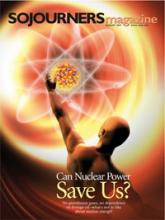The fifth general meeting of the Latin American Catholic Bishops Conference, held in May at the Marian shrine of Aparecida in Brazil, gives us a window through which to view the status of liberation theology today. While the long-term results of that meeting remain to be seen, once again—as has been true for decades—much of what is said about this theology today is wrong.
Even such a highly touted reporter as John Allen of the National Catholic Reporter summarized liberation theology as "designed to break the traditional alliance of the Latin American church with social elites and to support justice for the poor." This description infers that at some point groups of activists decided to bend the gospel to fit a political agenda.
That is not what liberation theology is about. Rather, it has been and continues to be an informed and serious questioning and challenging of Christian faith life in the context of enormous impoverishment in Latin America and around the world. "What does our scripture and tradition have to say about stunted and truncated human lives in our world?" is the way the liberation theologians have framed the question. Unfortunately, this legitimate theological inquiry has been misinterpreted by outside observers for several decades.
Read the Full Article
